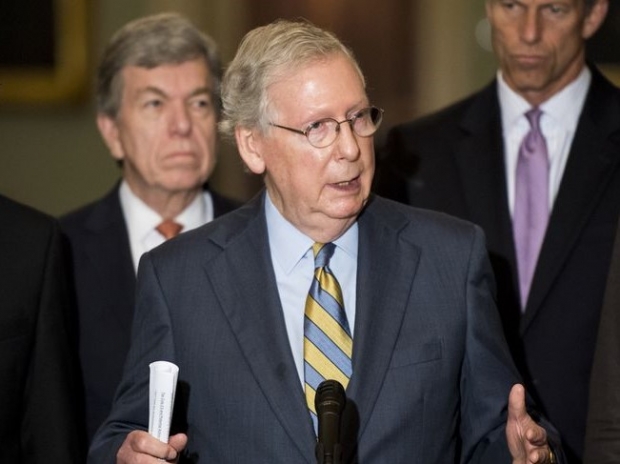An amendment offered by Vermont Sen. Patrick Leahy received 50 yes votes, 10 short of the 60 needed for approval. Leahy said securing US elections and "safeguarding our democracy" is not a partisan issue.
He said the Senate must send a clear message to Russia and other foreign adversaries that tampering in our elections will not be tolerated.
Leahy said that there was a marked reluctance from the Republicans and President Donald (Prince of Orange) Trump to fight against cyber attacks during the coming election.
The suggestion appears to be that President Putin is going to help out after the Republicans and Trump did such a sterling job stuffing up the Nato alliance.
A similar effort was also rejected in the House.
Meanwhile Microsoft has launched a pilot programme aimed at providing cybersecurity protection for political campaigns and election authorities.
The pilot programme -- named AccountGuard -- was launched at the end of July and was started in motion for the 2018 US midterm elections.
According to the pilot's website, AccountGuard "provides additional security and threat monitoring for Microsoft accounts belonging to participating US campaigns, political committees, campaign tech vendors, and their staff, who are likely to be at a higher risk in the lead up to elections".
Microsoft is now running a website where participants in the 2018 US midterm elections can sign up for this increased protection. According to the portal, participation is offered on a non-partisan basis and is by invitation only.
Users from the following organisations are eligible to participate: (1) US-based political campaigns (2) US-based political committees (3) Select campaign technology vendors (4) Select individuals may also participate, if invited by eligible campaigns and affiliated organisations
Last month, Microsoft said it had detected and helped block hacking attempts -- the first known example of cyber interference in the midterm elections -- against three congressional candidates this year. On Tuesday, Facebook said it was blocking more than two dozen pages that it believed were part of an ongoing political influence campaign.




